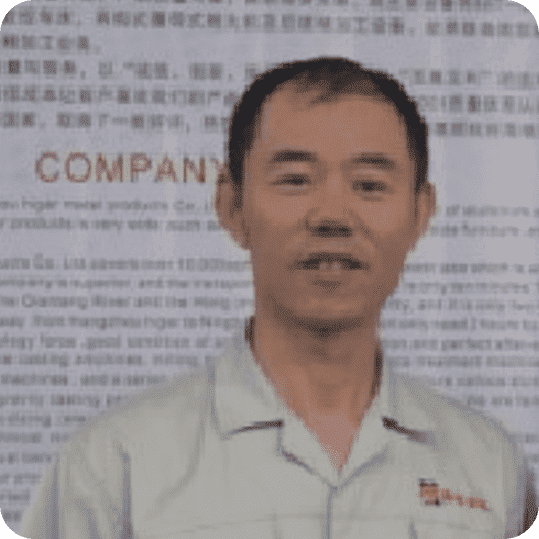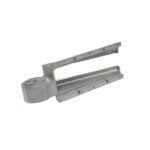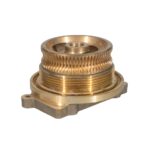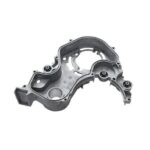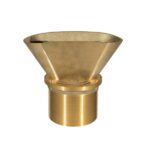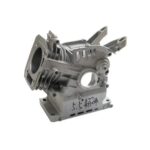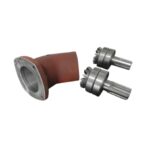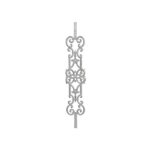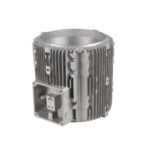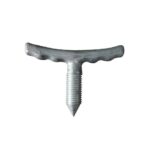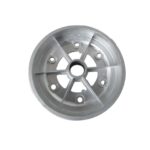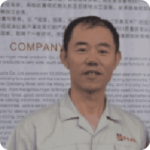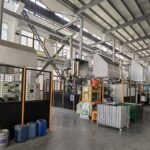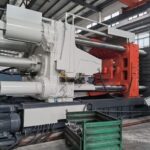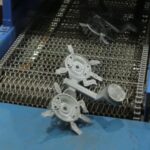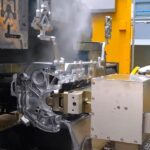Aluminum alloys are essential in modern manufacturing, with cast aluminum and extruded aluminum standing out as versatile processes.
While both use aluminum as the primary material, the methods and applications differ significantly, making it crucial to understand their distinctions.
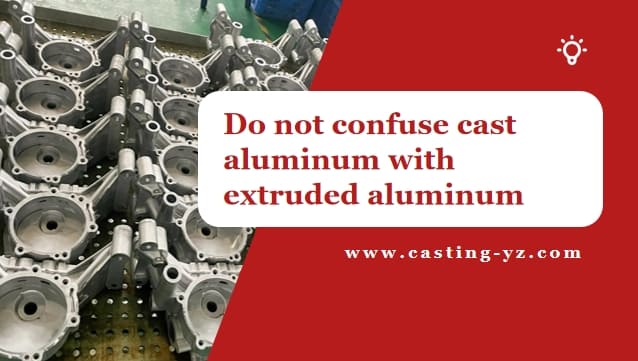
Cast Aluminum
Cast aluminum is produced by melting aluminum ingots and pouring the molten metal into molds. This method allows for creating complex shapes and is used in various casting processes, including:
- Sand casting: Ideal for large components with less emphasis on fine details.
- Die casting: Best for high-precision parts with consistent dimensions.
- Permanent mold casting: Suitable for medium-volume production with a focus on strength.
Key properties include:
- Complex shapes: Molds allow for intricate designs.
- Thermal conductivity: Useful in applications requiring heat transfer, such as engine components.
- Corrosion resistance: Ensures durability in harsh environments.
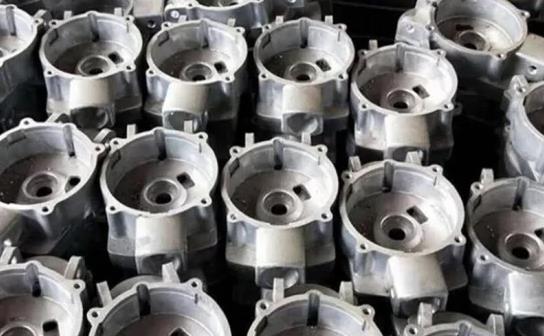
Extruded Aluminum
Extruded aluminum is made by forcing heated aluminum billets through a die to create cross-sectional profiles. Common extrusion processes include:
- Hot extrusion: Used for shaping high-strength alloys.
- Cold extrusion: For precision parts with enhanced surface quality.
Key properties include:
- High strength: Suitable for structural applications.
- Smooth finish: Often requires minimal post-processing.
- Uniform profiles: Ideal for components like frames and rails.
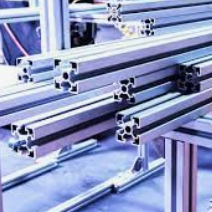
Comparison: Cast Aluminum vs. Extruded Aluminum
The table below highlights the key differences:
| Key Points | Cast Aluminum | Extruded Aluminum |
|---|---|---|
| Manufacturing Process | Molten aluminum poured into molds. | Aluminum billets pushed through a die. |
| Shape Complexity | Complex, intricate shapes possible. | Limited to simpler profiles. |
| Surface Finish | Rough surface requiring finishing. | Smooth, often requires minimal finishing. |
| Strength | Lower strength due to potential casting defects. | Higher strength with fewer defects. |
| Production Time | Longer due to mold preparation and cooling. | Shorter for repetitive profiles. |
| Cost | Cost-effective for large volumes, higher upfront mold cost. | Cheaper for low-volume production, higher unit cost for large volumes. |
Aluminum Alloys for Casting
Casting alloys are designed to meet specific performance needs, such as heat resistance, strength, and machinability:
- A380 and A383: Lightweight, corrosion-resistant alloys ideal for complex components.
- A360: Offers superior ductility and pressure-tight characteristics, suitable for intricate parts.
- ZA8, ZA12, ZA27: Zinc-aluminum alloys with varying aluminum content for enhanced strength or density, depending on the application.
Aluminum Alloys for Extrusion
Extrusion alloys cater to applications requiring high strength and aesthetic quality:
- 1050 and 3003/3103: Known for corrosion resistance and thermal conductivity, used in HVAC systems.
- 5083: Offers exceptional weldability, making it a favorite in marine industries.
- 6000 Series (e.g., 6061, 6063, 6463): Popular for architectural applications, offering a combination of strength, durability, and surface finish.
Applications: Choosing the Right Method
Whether to choose casting or extrusion depends on the part’s requirements:
- Choose Casting for:
- Engine parts: Complex shapes like cylinders or pistons.
- Heat sinks: Efficient thermal management for electronics.
- Structural brackets: Withstand high mechanical stress.
- Choose Extrusion for:
- Frames and rails: Uniform profiles for doors, windows, or machinery.
- Pipes and tubes: Seamless designs for irrigation or plumbing.
- Architectural components: Aesthetic trims and decorative profiles.
Advanced Technologies in Aluminum Casting
New advancements enhance the efficiency and performance of casting:
| Technology | Description | Advantages |
|---|---|---|
| Vacuum Die Casting | Removes air to prevent porosity. | Increases strength, suitable for automotive parts. |
| Rapid Heat Cycle Casting | Faster cooling for enhanced grain structure. | Boosts production speed, reduces material waste. |
| Semi-Solid Casting | Combines solid and liquid phases for complex geometries. | Improves dimensional stability and mechanical properties. |
Searching for High-Quality for Cast Aluminum Parts?
You’ve come to the right place! Yongzhu Casting is a certified die casting manufacturer with over 20 years of expertise in the industry.
We have successfully completed numerous die casting projects for Aluminum casting parts, particularly in your industry.

Zhejiang Yongzhu Casting Technology Co., Ltd.
Location: Zhejiang, Shaoxing
Company type: Manufacturing
Year Founded: 2004
Main Products: Aluminium die casting, Mold Making, Die Casting, Sand Casting, Gravity Casting
Leading Chinese producer Yongzhu Casting is formerly known as Hangzhou Higer Metal Products Co., Ltd., was established in 2004.
With 20 years of experience in the industry, we are a specialized manufacturer in Aluminum casting and Machining.
Our products are widely used in various applications such as Automotive, Energy, Lighting, Medical, Home Furnishings, Machinery & Equipment etc. Below is one of our products.
It’s worth mentioning that the evolution of rapid logistics has transformed how industries approach purchasing. Aluminum casting orders can now be sourced from overseas suppliers efficiently.
For instance, working with YONGZHU CASTING, you can inquire, order, and even find better value than your local options—all while maintaining assured quality.
Design Review & DFM Support
Our professionals will evaluate your designs and provide suggestions for cost savings. Additionally, we offer Design for Manufacturing (DFM) assistance and conduct mold flow analyses to facilitate efficient production.
State-of-the-Art Manufacturing Equipment
Our facility is equipped with advanced hot-chamber and cold-chamber die casting machinery for aluminum and zinc production.
We also utilize high-precision CNC machines in a temperature-controlled workshop, featuring 3-Axis, 4-Axis and 5-Axis setups to manage any project you have.
Rigorous Quality Control Measures
Our dedicated quality control team ensures that all parts meet the highest standards of quality and consistency. We employ high-accuracy measurement instruments, including CMM, spectrometers, and X-ray detectors.
Comprehensive Surface Treatment Options
We provide a variety of surface finishing techniques for your precision die casting components. Our in-house services include cleaning, polishing, anodizing, shot blasting, and painting.
Flexible Project Acceptance
While larger manufacturers often shy away from low-volume projects, and smaller ones may struggle with quality, Yongzhu Casting stands apart. We prioritize customer satisfaction and willingly accept high-mix, low-volume projects like yours.

Conclusion
The choice between cast aluminum and extruded aluminum hinges on the application requirements. Casting excels in producing complex shapes for automotive and aerospace components, while extrusion dominates structural applications like frames and pipes.
By understanding these differences and leveraging the strengths of aluminum alloys, manufacturers can achieve optimal performance and cost-efficiency.
For high-quality die casting solutions, Yongzhu Casting remains your trusted partner.
FAQs
- What is the melting point of cast aluminum?
Around 660°C (1,220°F), suitable for various industrial applications. - What alloys are best for casting?
A380 and A360 for complex parts; ZA8 for hot chamber casting. - What is the difference between cast aluminum and cast iron?
Cast aluminum is lightweight and corrosion-resistant, while cast iron is heavier and stronger. - What is the melting point of cast iron?
Approximately 1,200°C (2,200°F), higher than cast aluminum. - Can cast aluminum be recycled?
Yes, over 70% of aluminum ever produced is still in use today. - What are common extrusion applications?
Doors, window frames, irrigation pipes, and decorative trims. - What makes 6000 series alloys popular for extrusion?
Their strength, surface finish, and corrosion resistance make them versatile. - Which is stronger: cast aluminum or extruded aluminum?
Extruded aluminum is typically stronger due to fewer defects. - What is the melting temperature of cast aluminum?
Around 660°C (1,220°F), similar to its pure aluminum counterpart. - Why choose Yongzhu Casting for die casting?
Expertise, global reach, and advanced technology ensure high-quality solutions.

